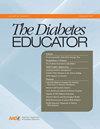The Role and Value of Ongoing and Peer Support in Diabetes Care and Education
IF 3.9
Q1 Health Professions
引用次数: 15
Abstract
Purpose Increasing attention is being given to the challenges and emotional toll of managing diabetes. This Perspectives in Practice details the specialty’s guiding documents for initial and ongoing support. It also defines various types of social support, including peer support, for optimal diabetes care. Focusing on peer support, this paper provides a review of the body of evidence demonstrating the value of peer support to improve clinical and behavioral outcomes. To achieve positive outcomes, it is optimal for people with diabetes to have access to ongoing support from their health care provider, including diabetes care and education specialists. They should also be made aware of, and given referral to options and opportunities for peer support. This Perspectives in Practice concludes with a call to action for diabetes care and education specialists to deliver to integrate and promote the value of peer support in the care they provide. Conclusion Managing diabetes during the stages and ages of life is chronically challenging and complex. Various types of support offered by health care providers, including diabetes care and education specialists and others in the person’s social support milieu, can positively affect emotional well-being. Health care providers should routinely assess their client’s social supports and refer the person with diabetes and/or their caregivers to evidence-based types of peer support mutually determined to be of most value. Diabetes care and education specialists should increase their awareness of opportunities to integrate the value of and referral to peer support in their counseling and to gain greater insight into the diabetes-lived experience.持续和同伴支持在糖尿病护理和教育中的作用和价值
目的人们越来越关注糖尿病管理的挑战和情感损失。本实践视角详细介绍了该专业的指导文件,用于初始和持续支持。它还定义了各种类型的社会支持,包括同伴支持,以实现最佳糖尿病护理。本文以同伴支持为重点,回顾了大量证据,证明同伴支持对改善临床和行为结果的价值。为了取得积极的结果,糖尿病患者最好能获得包括糖尿病护理和教育专家在内的医疗保健提供者的持续支持。还应让他们了解同行支持的选择和机会,并将其推荐给他们。《实践展望》最后呼吁糖尿病护理和教育专家采取行动,在他们提供的护理中整合和促进同行支持的价值。结论在生命的各个阶段和年龄段管理糖尿病是一项长期的挑战和复杂的工作。医疗保健提供者提供的各种类型的支持,包括糖尿病护理和教育专家以及个人社会支持环境中的其他人,可以积极影响情绪健康。医疗保健提供者应定期评估其客户的社会支持,并将糖尿病患者和/或其护理人员转介给双方共同认为最有价值的循证类型的同伴支持。糖尿病护理和教育专家应提高他们对机会的认识,将同伴支持的价值和转介纳入他们的咨询中,并对糖尿病的生活体验有更深入的了解。
本文章由计算机程序翻译,如有差异,请以英文原文为准。
求助全文
约1分钟内获得全文
求助全文
来源期刊

Diabetes Educator
医学-内分泌学与代谢
CiteScore
4.00
自引率
0.00%
发文量
0
审稿时长
6-12 weeks
期刊介绍:
The Diabetes Educator (TDE) is the official journal of the American Association of Diabetes Educators (AADE). It is a peer-reviewed journal intended to serve as a reference source for the science and art of diabetes management.
TDE publishes original articles that relate to aspects of patient care and education, clinical practice and/or research, and the multidisciplinary profession of diabetes education as represented by nurses, dietitians, physicians, pharmacists, mental health professionals, podiatrists, and exercise physiologists.
 求助内容:
求助内容: 应助结果提醒方式:
应助结果提醒方式:


